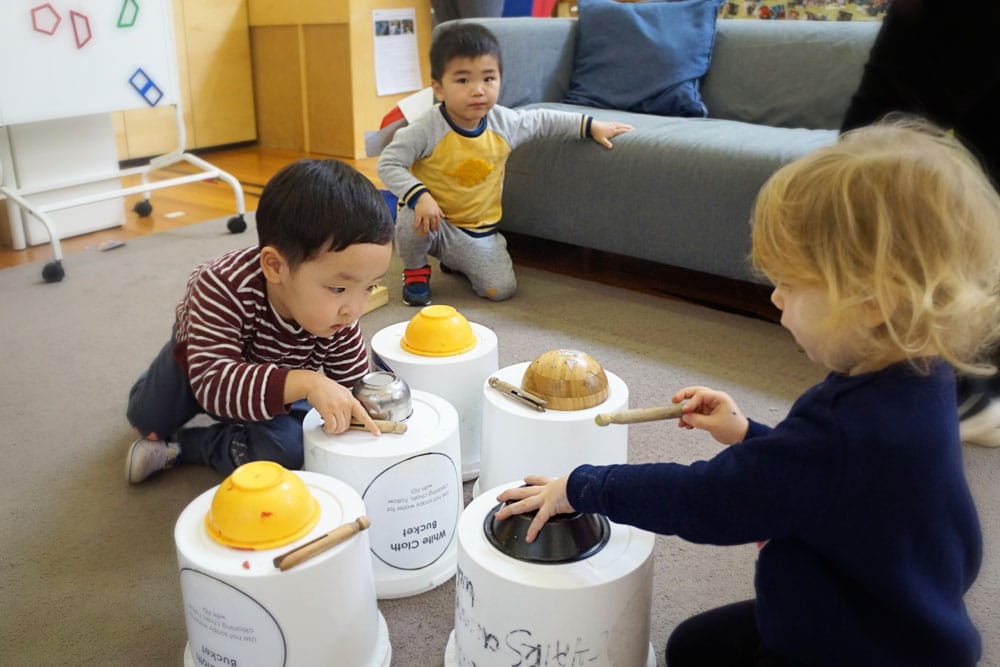Today Dr. Marie Martin talks about how children attending an outside of SOEL Kindy are propelled backwards from being capable, involved co-learners, to “little kids” again.
When 4 year olds are in two kindergarten programs they have ‘a foot in two worlds’. At SOEL, they are ‘big children’, capable and competent. They are required to use their well-developed self-help skills, studio skills and research skills (learned over the three or four years of their SOEL enrolment) as they engage in play-based learning and long term investigations, achieving a depth of thinking that constantly amazes early childhood professionals, researchers and practitioners who visit our centres.
Children reinforce their own learning, skills and development as they mentor younger children.
– Marie Martin
The children’s creativity and imaginations are stimulated in our programmes, developed by our artists and harnessed in dramatic, construction, manipulative and exploratory play. Children’s problem solving and decision making skills are applied as they make informed choices about the things they do, their production processes and their interactions with other children. Fundamental movement skills are practised, refined and demonstrated in a wide range of activities in gardens, rooms and excursions.


Children reinforce their own learning, skills and development as they mentor younger children, purposefully engaging with them in a measured, kind, collaborative process, praising the younger child’s attempts at as task, celebrating with them when they success and reflecting their own interactions with their educators and mentors.
Language and numeracy skills are learned, reinforced and applied through authentic purposes: creating lists, measuring, researching, recording, reporting and reflecting.
At the local Kindy program, 4 year olds are some of the youngest children in the school. They seem little to others and the older children certainly look like ‘big kids’ to the 4 year old. Their capabilities are seen in the spectrum of the next 7 years; immature and developing.
They are associating with children they may be with (at least those who don’t move suburbs, schools or states) for their primary schooling and they may see at a neighbourhood park (if the families take them there) or through ‘play dates’.
Fundamental movement skills (such as running, catching and dodging) are the focus for physical education and fine motor skills (such as cutting and pencil grip) are important in ‘table top activities’. ‘Formal’ lessons emphasise the skills of letter, sound, word, sentence and number recognition and patterning. The role of the family continues to be paramount; children deserve someone who loves them unconditionally.
The values of the family can be learned only through relationships and interactions with family. Skills need places and situations to be practised and applied. Children’s learning and thinking needs to be aired and heard. Children who ‘have a foot in two worlds’ move from being a ‘big kid’ at SOEL to being a ‘little kid’ at school. With support, they can find ways to accommodate the different perceptions and expectations of them and take advantage of the opportunities provided.
